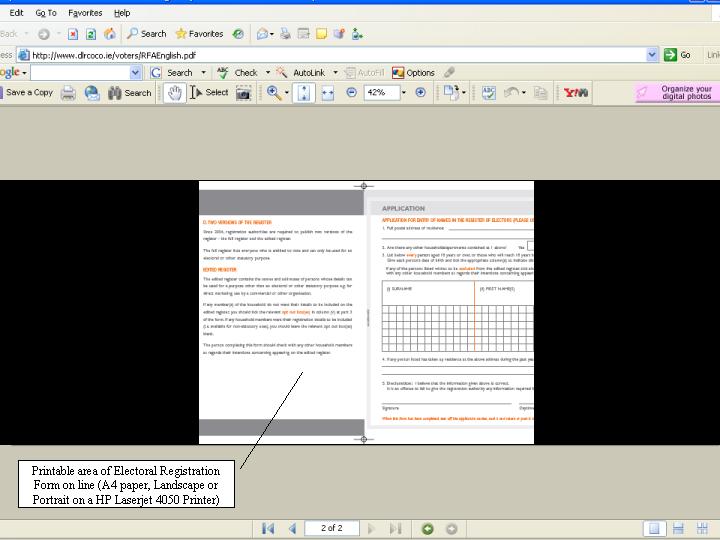I’m frankly baffled. We are in the run up to a General Election here in Ireland. All the media pundits are quoting 24th May as the date of the (as yet unannounced) election. This would require our parliament to be dissolved at the latest next week.
Ireland runs a Proportional Representation/Single Transferable Vote system. It is built into our Consitution. There is a large body of legal opinion around the thresholds at which the ratio of elected representatives to number of people in a constituency breaches the Constitution. We are, it seems, at that point in 10 consituencies out of a total of 43. This has resulted in a Constitutional challenge in the High Court by two Independent TDs (Members of Parliament) to the holding of any election until the balance of Proportional Representation is restored through changes to the make up of Consituencies.
The fact that key demographics had changed and there was a risk that the Electoral Constituency boundaries or numbers of representatives in each consituency might need to be altered was identified in September 2006 when the preliminary figures from our Census were published. There is no legal obligation on the Government to act or react to these however. The final Census figures were published on the 29th of March. These should be acted on or else there is the risk of any election being declared unconstitutional.
The risk is that if the Dáil (our parliament) is dissolved prior to an election the running of which is declared unconstitutional until the parliament (the one that has been dissolved) addresses the issue of the Electoral contituencies then we could find ourselves with a bit of a governmental and Constitutional crisis.
Yet the media continue to focus on the dog and pony show but ignore the Gorrilla in the room. The Executive arm of Government continues to barrel down the path to an election without any apparent appreciation of the risk that exists, both to the simple fact of an election and to the essence of our Constitution. Why has the existence of this Constitutional challenge not been publicised more? Why are the media giving the politicians sound-bite time to puff their agendas ahead of an election being called but they don’t ask the relevant politicians why we find ourselves at a juncture where the Constitutionality of our Electoral system is being challenged due a disproportionality in representation?
The chronic lack of leadership and accountability on the part of the Government Minister charged with monitoring and managing how our Electoral Register and our Electoral Processes operate is shocking. However at least it is consistent with his lack of leadership and lack of willingness to be accountable for anything other than a soundbite on the news (he was going to ‘bash some heads together’ over the Galway water crisis apparently).
To tie this back to my theme of Information Quality Management, Deming called on management to adopt a “constancy of purpose” and to wholeheartedly take on “the new philosophy” while breaking down barriers between people/organisations and driving out the fear that prevents the delivery of quality.
Why does the relevant Minister seem to act in a manner that could only serve to drive in fear and increase the barriers that might exist that would prevent a good job being done? What is our incumbent Government’s purpose that they are constant to? What is the philosophy that they are pursuing?
I’m off to Paddy Powers to place a bet that the Election won’t be called this side of June. Congratulations to Catherine Murphy and Finian McGrath for taking a stand on this issue.
